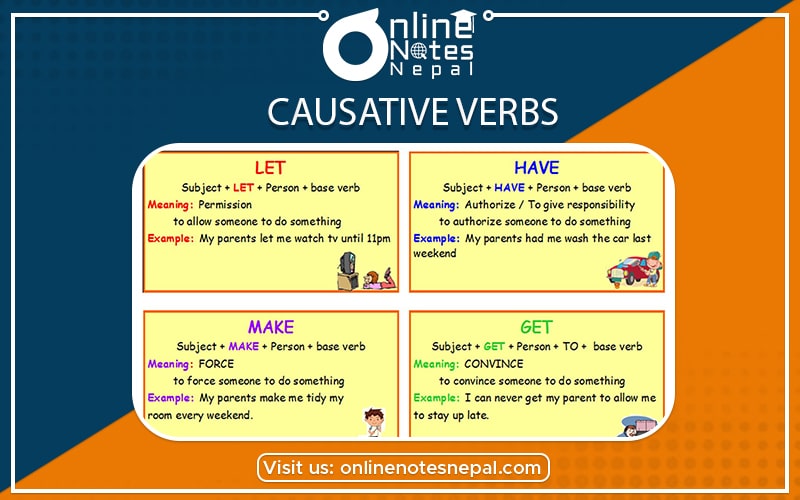Published by: Zaya
Published date: 06 Jul 2021

Causative verbs express an action which is caused to happen. The English verbs let, make, have, get, and help are called causative verbs because they cause something else to happen.
Get gives the idea of persuasion, have is asking and make is forcing or strong convincing. These causative verbs can come in any tenses.
Uses of causative verbs:
Make:
'Make as a causative verb follows the structure "sub + make + agent + V1 +...." that means to force someone to do something.
In the passive structure, the causative verb 'make' comes with 'to + V1.
Get:
'Get' as a causative verb follow the structure "sub + get + agent + to + V1 + ......" that means to convince someone to do something.
Have
'Have' as a causative verb follows the structure "sub + have + agent + V1+......" that means to give someone the responsibility to do something or to ask someone to do something.
Get/Have something done
Sometimes 'get someone to do something' or 'get something done' is interchangeable with 'have something so something' or 'get something done'. but there is a little difference between these expressions.
1. Have something done
2. Get something done